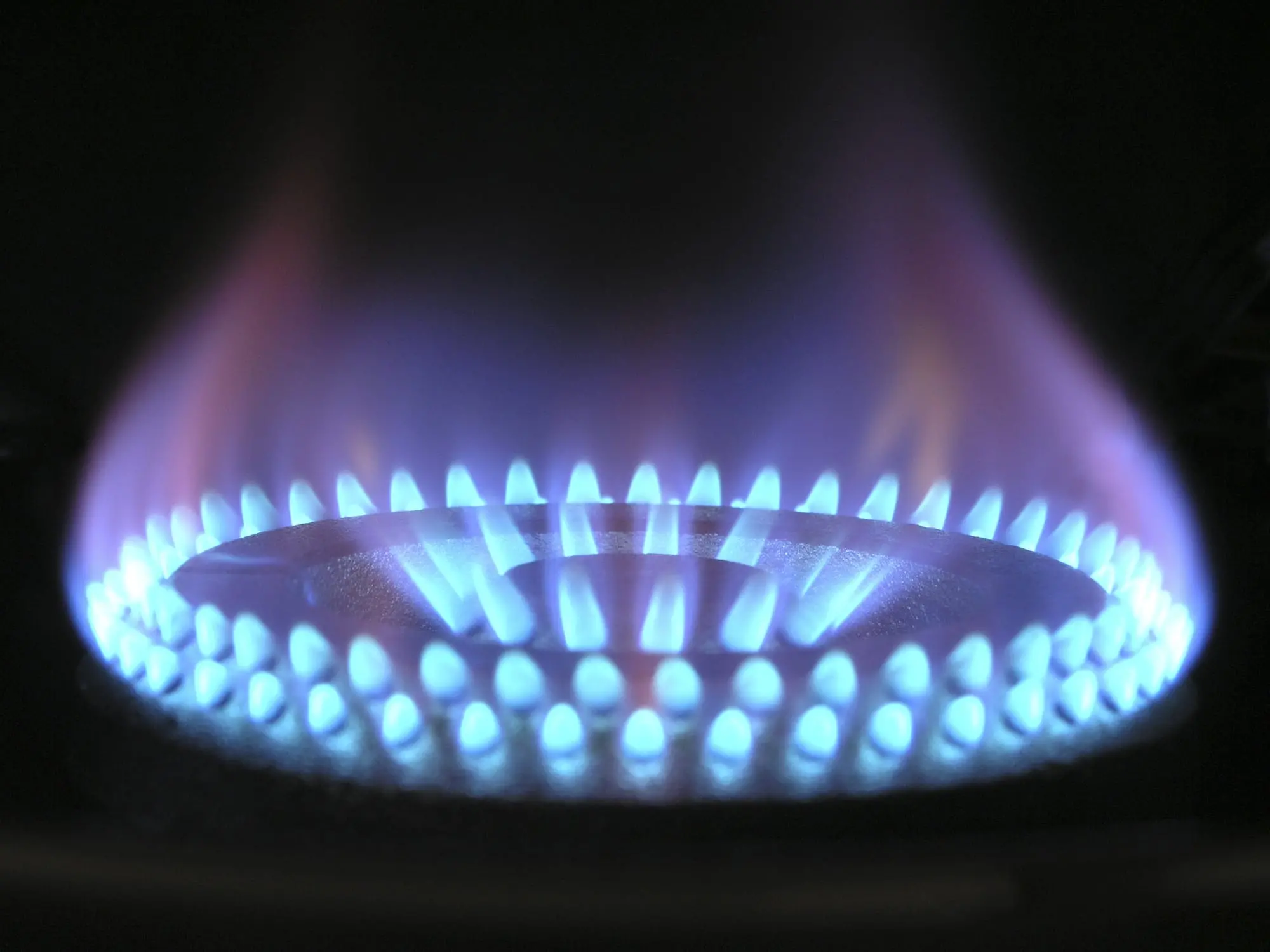Gas is one of the world’s leading energy sources. It is heavily used to produce electricity. Indeed, 36% of natural gas is consumed to produce electricity, against 31% for residential applications (cooking, heating) and 19% for industrial applications.
The size of gas power or heat plants ranges from a few tens of kW to 5000 MW.
Several technologies are available: steam or gas turbines, single cycle or combined cycle, that is to say with recovery of fumes to produce steam supplying a steam turbine. Combined cycle turbines offer a better efficiency of up to 60%.
Gas turbines make it possible to co-generate electricity and heat and thus reach an efficiency of about 80%.
These technologies are adapted to provide a regular energy generated flow as well as to serve peak consumption thanks to their ability to quickly change their level of production.
A gas power plant consumes a lot of water for cooling the turbine and must be located along a river. In order to limit the impact on the environment of warmed water evacuation, the gas power plants’ builders are now looking for the design of air-cooled plants.
Like for all fossil fuels, the gas combustion emits CO2. The IEA recommends about 600 kg CO2 / MWh for a combustion turbine, 350 kg CO2 / MWh for a co-generator and 360 kg CO2 / MWh for a combined cycle power plant. In comparison, the emissions from a coal-fired power plant are 950 kg CO2 / MWh and those of an oil-fired power plant of 780 kg CO2 / MWh.
These figures show gas is the least CO2 emitting fossil fuel. In the context of an energy transition, substituting coal-fired power plants for gas-fired plants contributes to reducing greenhouse gas emissions, but, given the regularly increasing energy consumption, a predominant place given to gas in energy mix will not be enough to achieve the goals of reducing gas emissions.
In several European countries, the development of solar and wind energy limits certain gas-fired power plants to serve the peak periods for which they remain indispensable. Their burden is now less important, and their competitiveness is affected because the fixed costs are amortized on a lower production.
The gas can have several origins: natural gas, shale gas whose extraction still raises some environmental issues, biogas from landfill sites or biogas plants.
The main natural gas producing countries are the US (20% of world production in 2016), Russia (19%), Qatar (5%), Iran (5%), Canada (5%), Norway (3%), China (3%), Arabia (2%), Indonesia (2%) and Algeria (2%).
It is easy, in view of these figures, to understand the place that the US gives to gas in their energy mix, the weight that gas represents in the GDP of Algeria or Norway and the geostrategic dimension that immediately have, for any country, the search for security of the gas supply.
Some want to make gas the star of fossil fuels because of its low CO2 emissions: this position does not induce any change of reasoning about energy markets and the structure of systems, while making a (limited) gesture in favour of CO2 emissions. While gas keeps a high interest in the future, let us beware that the targets for reducing greenhouse gas emissions will soon be sufficiently restrictive for us to reduce the role accorded to fossil fuels. Then, perhaps, another gas, hydrogen, will have to be considered first.
It is probably this paradox between short-term perspectives and a more questionable long-term future that will cause uncertainty and procrastination over the future of gas for a few decades.
Click here to read other articles of the same author.



Leave your comments
Post comment as a guest